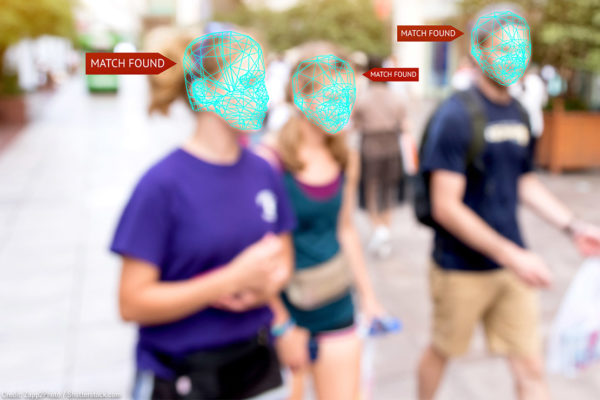ACLU Challenges FBI Face Recognition Secrecy
BOSTON — The American Civil Liberties Union and the ACLU of Massachusetts today filed a lawsuit challenging the secrecy shrouding federal law enforcement use of face recognition surveillance technology. The lawsuit was filed against the Department of Justice, the Drug Enforcement Administration, and the FBI.
“There can be no accountability if there is no transparency,” said Kade Crockford, Director of the Technology for Liberty Program at the ACLU of Massachusetts. “The public has a right to know when, where, and how law enforcement agencies are using face recognition technology, and what safeguards, if any, are in place to protect our rights. This dystopian surveillance technology threatens to fundamentally alter our free society into one where we’re treated as suspects to be tracked and monitored by the government 24/7.”
The ACLU in January filed a Freedom of Information Act request with the FBI and DEA seeking records related to the agencies’ use of face and other biometric surveillance technologies. The agencies acknowledged receipt of the request, but failed to produce any responsive documents. The ACLU is now asking a federal court to intervene and order the agencies to turn over all records detailing:
- how face and other biometric identification technologies are being used by the agencies,
- what, if any, safeguards are currently in place to prevent their abuse and protect core constitutional rights,
- what databases containing sensitive biometric data the agencies can access, how often, and under what circumstances,
- whether the FBI or DEA have ever conducted audits of their technology, and
- which companies the government is communicating with about possible pilot programs or other implementation.
The ACLU warns that face and other biometric surveillance technologies can enable undetectable, persistent, and suspicionless surveillance on an unprecedented scale. This would permit the government to pervasively track people’s movements and associations in ways that threaten privacy and due process rights. The organization adds that as lawmakers and the public seek to prevent this technology from undermining fundamental constitutional values, transparency is crucial.
Members of Congress have held a series of hearings to investigate the technology’s use. California this month blocked use of face and other biometric surveillance on police body cameras. , , , and , recently enacted bans on government use of face surveillance, and similar efforts are currently under consideration in cities and states across the country, including in .
Many of these city and state initiatives are part of the ACLU’s (CCOPS) effort, which is designed to ensure residents — through their local governments and elected officials — are empowered to decide if and how surveillance technologies are used, and to promote government transparency with respect to surveillance technologies.
A number of companies have recently stated that they support and encourage increased government transparency around the use of face recognition, but continue to secretly market and sell the technology to agencies, including those with poor transparency records, such as the FBI.
The lawsuit was filed under the Freedom of Information Act in the U.S. District Court for the District of Massachusetts.
A blog post by the ACLU on the lawsuit is here: /news/privacy-technology/the-fbi-is-tracking-our-faces-in-secret-were-suing.
